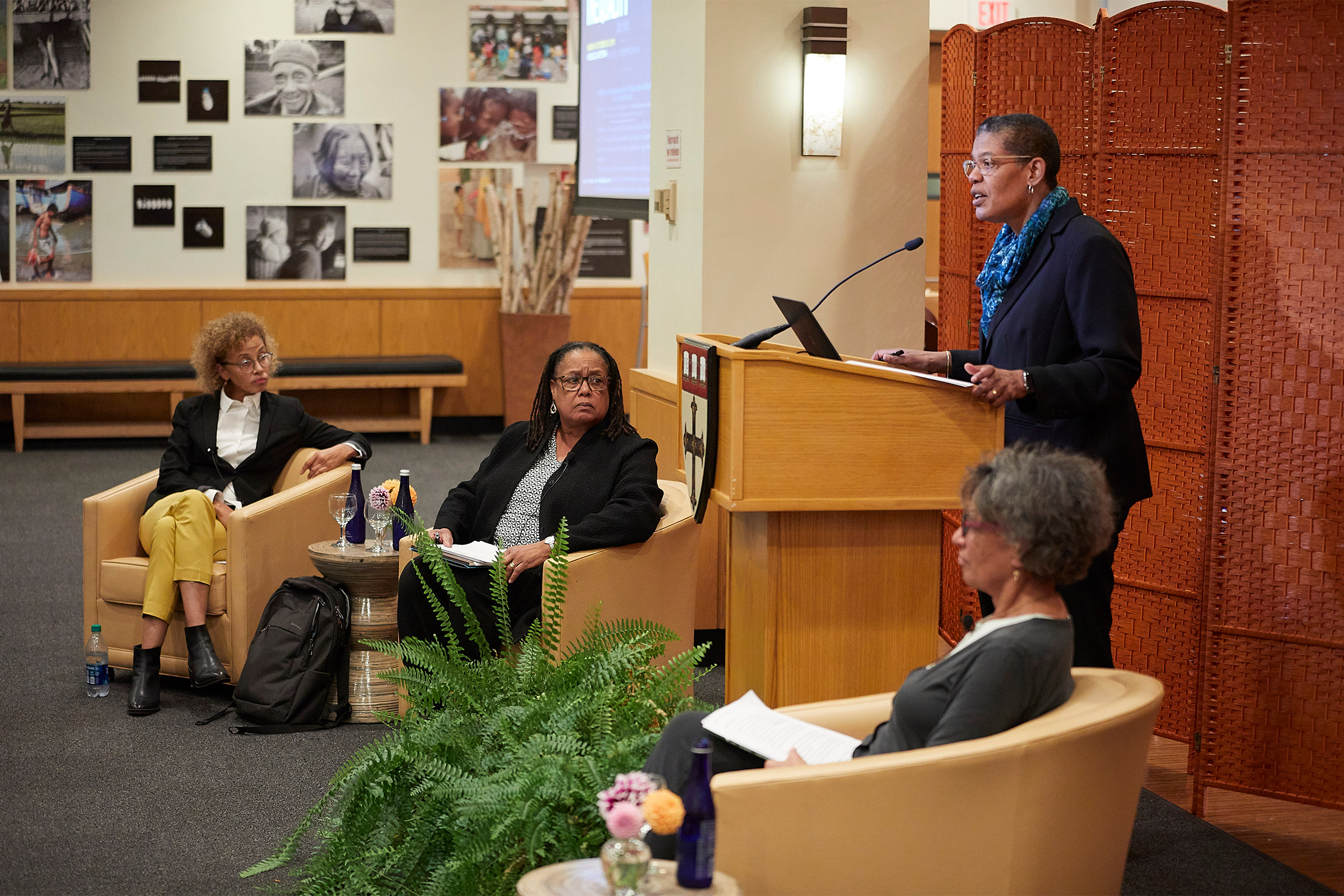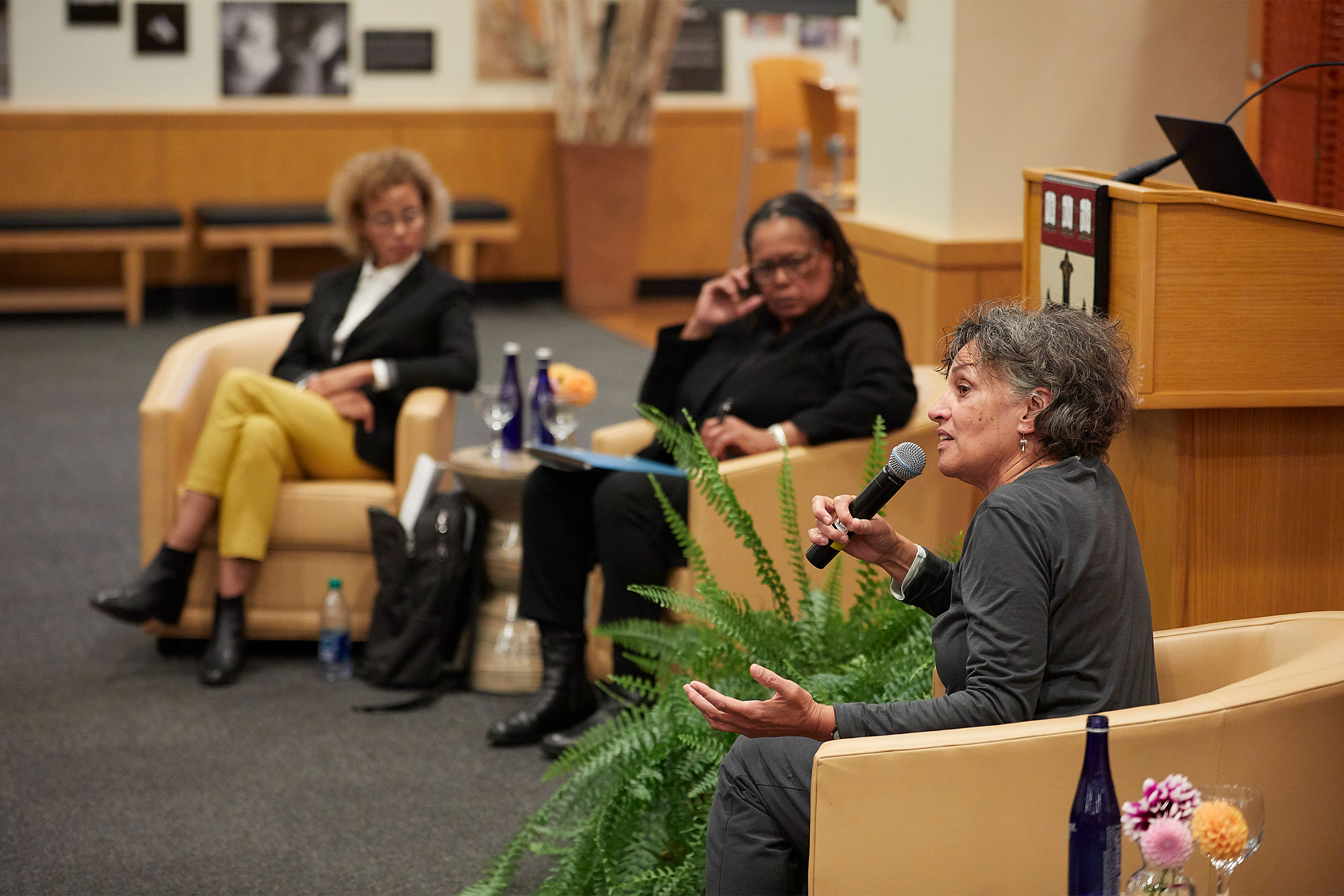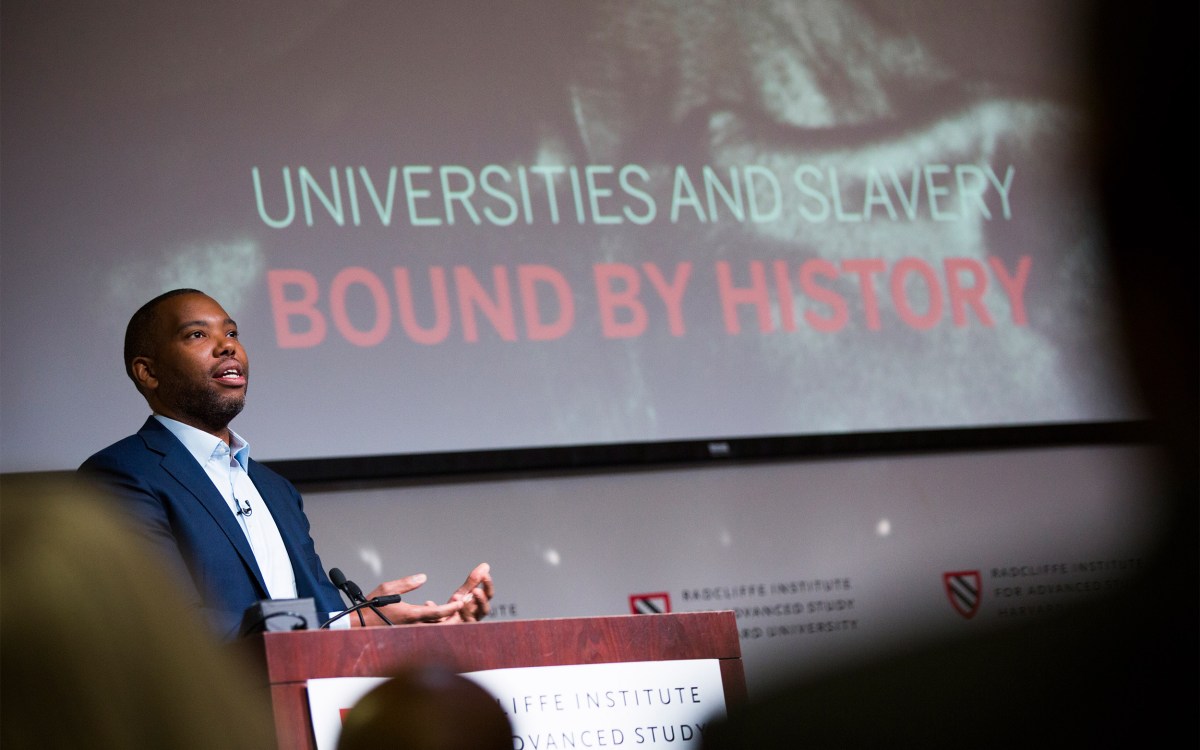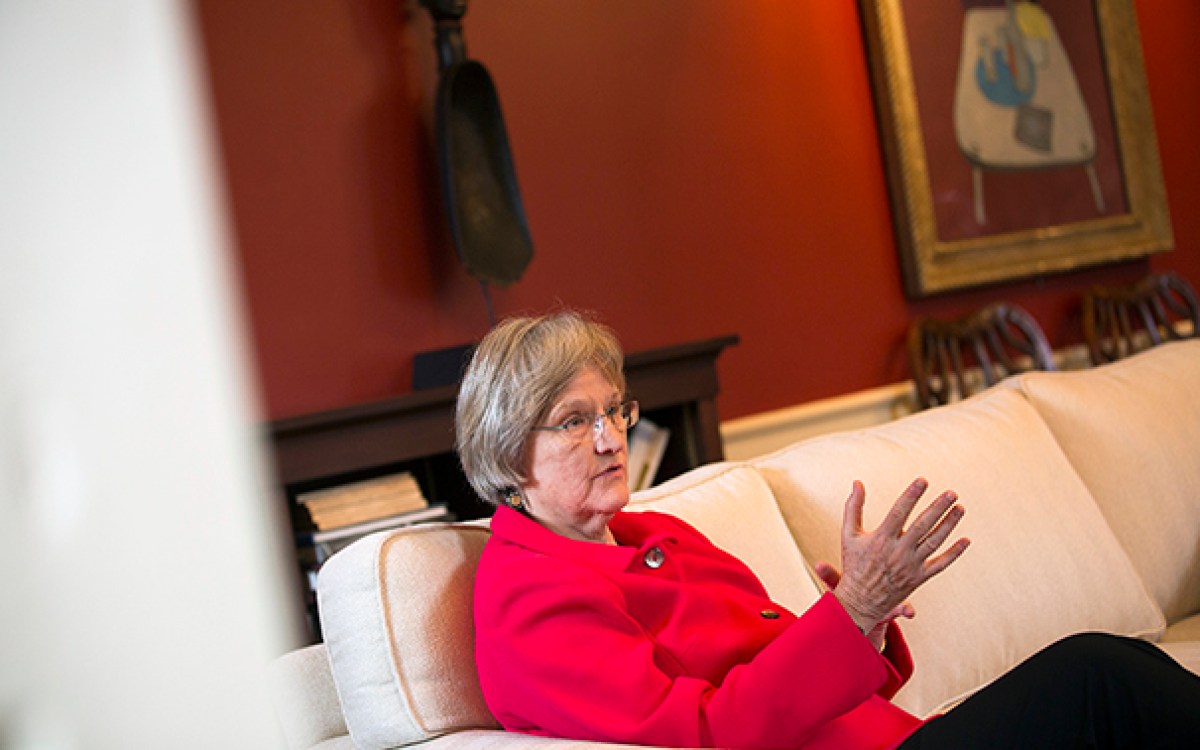
The U.S. is one of only 13 countries in the world where more women die in childbirth today than they did 25 years ago, and African American women are three to four times more likely to die than whites, said Harvard Chan School Dean Michelle A. Williams (podium), who was joined by Linda Villarosa (from left), Evelynn M. Hammonds, and Mary Bassett at the symposium, “400 Years of Inequality.”
Photos by Kent Dayton/Harvard Chan School
How slavery still shadows health care
Event examines ‘400 Years of Inequality’
Slavery in America traces its beginnings to August of 1619, when starving pirates sold about 20 kidnapped Africans to English colonists in Jamestown, Va., in exchange for food. On Monday afternoon an expert panel argued that centuries later, the legacy of slavery still shadows the American health-care system.
The event, “400 Years of Inequality,” was sponsored by the Harvard T.H. Chan School of Public Health and Harvard’s FXB Center for Health and Human Rights and held at the Kresge Building. Chan School Dean Michelle A. Williams set the tone in her opening remarks with a quote from Martin Luther King Jr.: “Of all the forms of inequality, injustice in health care is the most shocking and inhumane.”
Williams provided sobering statistics: The U.S. is one of only 13 countries in the world where more women die in childbirth today than they did 25 years ago, and African American women are three to four times more likely to die than whites. A black woman with an advanced degree, she said, is likelier to lose her baby than a white woman with an eighth-grade education. Worse, certain stereotypes with roots in slavery have endured to the present — notably the idea that black people do not feel pain in the same way whites do, a notion once used to justify whipping and other abuse.
“This has wormed its way into scientific theory and a study published in 2016 — yes, 2016 — said that a majority of medical students still believe it.” This makes being black a risk factor in itself, she said.
“The inequalities of the health system were built in from the beginning,” said former Harvard College Dean Evelynn M. Hammonds, now chair of the Department of the History of Science. Due to harsh living conditions and various privations, she said that slaves fell victim to a range of diseases and an infant mortality rate double that of the white population, yet much of this was written out of history. In fact, she noted, George Rosen’s seminal “A History of Public Health” (1958) says nothing about race or slavery. “The history of the field you are studying makes no mention of this.”
Director of the FXB Center for Health and Human Rights Mary T. Bassett speaks during the panel discussion.

Also overlooked, she said, is the fact that the health of African Americans barely improved after emancipation, owing to the hurdles former slaves faced procuring adequate food, shelter, and clothing. This led to a disproportionate number of African Americans dying during the early 20th-century smallpox epidemic, fostering arguments in some circles that slavery was better for black welfare. Even in 1981, she said, a North Carolina study found a higher black mortality rate because of lack of access to health services. “The negroes died because they were inferior,” Hammonds said, “And they were inferior because they died.”
The event was part of a nationwide attempt by schools of public health and other community organizations and institutions to use the anniversary of American slavery as an opportunity for a soul-searching. It recalls Harvard’s own campaign in the past dozen years to come to terms with its connections to slavery through research and teaching by Sven Beckert, Laird Bell Professor of American History, and others, and the efforts of Drew Faust, now Harvard president emeritus and the Arthur Kingsley Porter University Professor, to foster initiatives such as a major nationwide conference in 2017 on universities and slavery, and unveiling a plaque honoring early enslaved workers.
At Monday’s gathering, City College of New York journalism Professor Linda Villarosa, a recent contributor to The New York Times Magazine’s 1619 Project on the history of slavery, recalled an earlier story she wrote for Essence magazine. It focused on an African American woman in New Orleans who lost her first child because doctors ignored warning signs of an impending miscarriage. Treatment was nearly as bad when she was pregnant with her second child, who was delivered by a doctor she’d never met — a common occurrence for black women, Villarosa found. What shocked her, she said, were the letters she received in response to her piece, many of which condemned the woman for having a second child and invoking myths about the inferior health of black Americans. “The level of denial about these issues was surprising and difficult.”
A mother herself, Villarosa also found disturbing signs in her own dealings with the system. She noted that in many hospitals, the spirometer (used to measure lung capacity) is given a “racial correction” because of the perception that African Americans have inferior lungs — an infuriating falsehood that she traced back to something Thomas Jefferson wrote. She suspected that such an adjustment was made on her when she was pregnant, which was ironic, since she’d been raised at higher altitudes in the Colorado mountains and so probably had stronger-than-average lungs. Worse, when she developed a complication during her pregnancy, her doctor asked whether she’d used crack cocaine, despite her status as the health editor of a national magazine.
Villarosa did propose one solution: providing racial training for OB-GYNs. “It’s about taking our valuable training and marrying it with something else — with respect and caring, kindness and love.”








